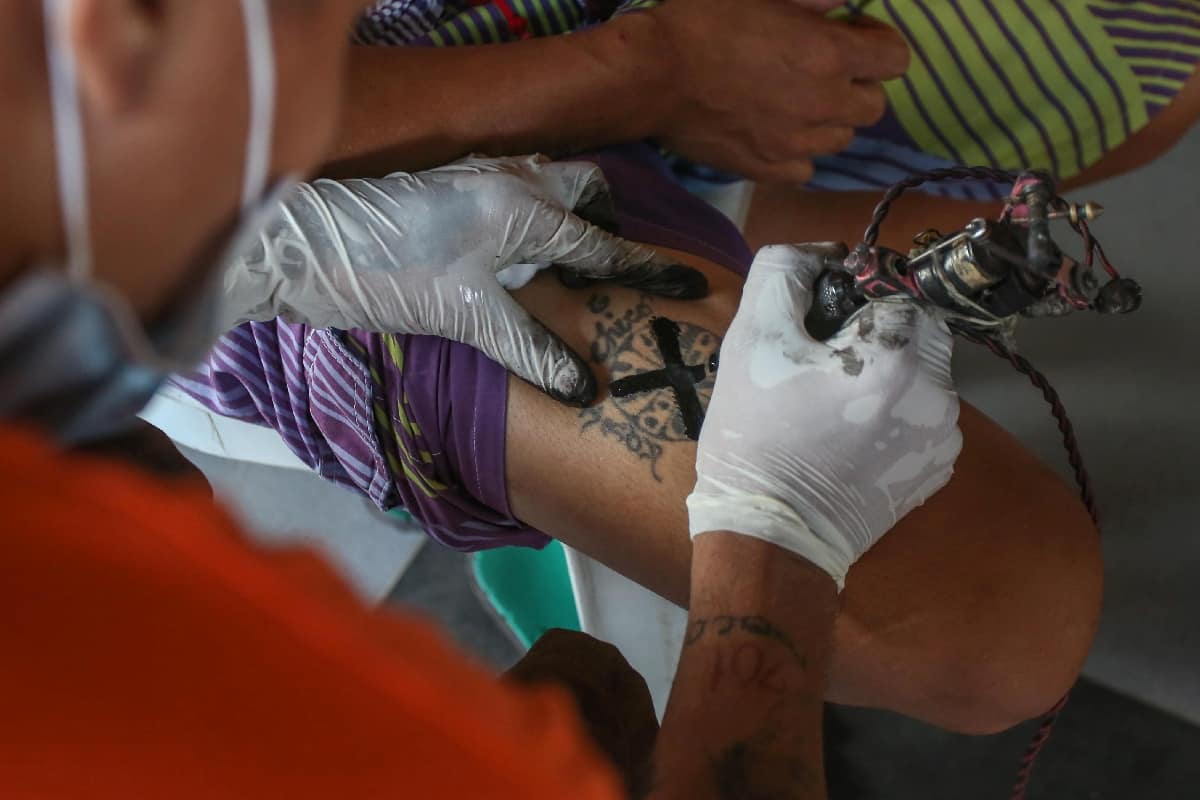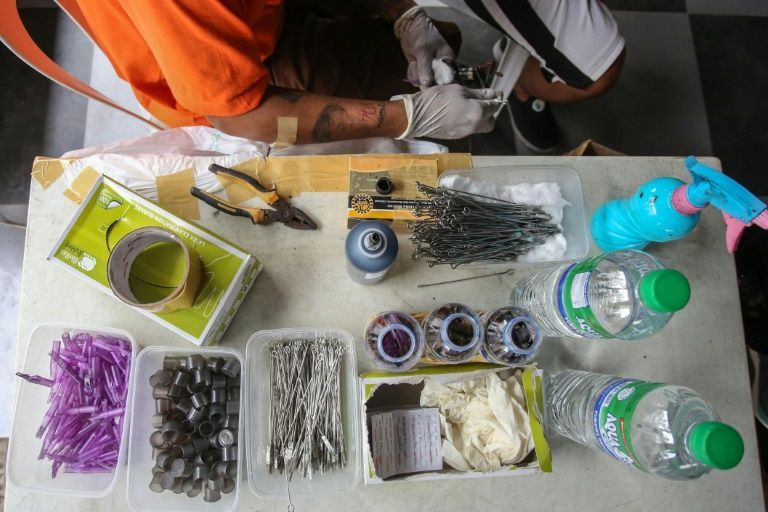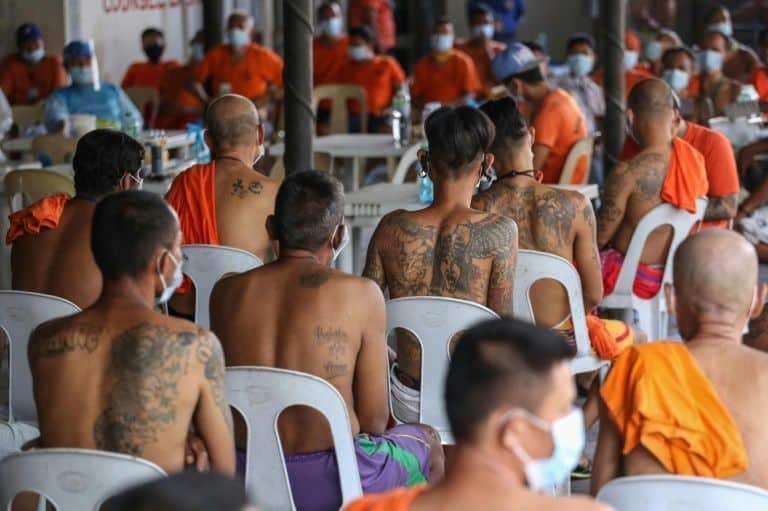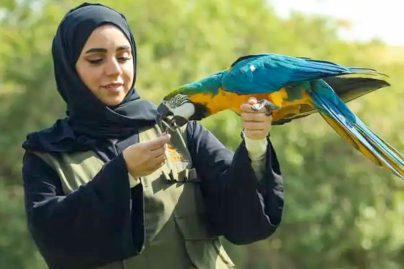Philippine inmates tattoo over gang signs to curb prison violence
Thu 03 Dec 2020
Heavily inked Philippine prisoners hunch over faded tattoos needling the skin anew with improvised tattooing machines to cover up gang symbols — all in an effort to reduce rampant jail violence that has taken a turn for worse since President Rodrigo Duterte took to power in 2016.
Deadly clashes between rival clans are common in the island country’s notoriously overcrowded and under-resourced jails, where belonging to a gang can be a lifeline to food, medicine and protection.
Conditions inside prisons have incensed under Duterte’s rule, whose anti-narcotics crackdown has sent thousands to prisons already loaded several times over their capacity.
Inmates who join a gang get inked by fellow prisoners within their congested cells, forever branding them with a distinctive design signalling solidarity to a group.
Authorities hope that defacing these markings will stop inmates from being dragged into cellblock wars and strip them of loyalty to a particular gang, making it harder for leaders to mobilise their network of followers to riot or trade in drugs.
“When inmates belong to a group or a gang, they have a sense of security,” said Gabriel Chaclag, spokesman for the Bureau of Corrections, who insisted the programme that started in October was voluntary.
“But on the other hand, if you joined a gang that does bad things, you will also be a target of their rival gang.”
At Manila’s New Bilibid Prison — the country’s largest, with more than 28,000 inmates crushed into a complex designed for about 6,000 — the vast majority of prisoners belong to a gang.
“Before, you had to help your fellow gang member when they were in a fight but not anymore,” said Mark, a convicted murderer — AFP was unable to use his real name.
He joined the Batang Mindanao [Children of Mindanao] gang when he entered prison this year.
“Now it’s just brotherhood, we are all brothers,” he added, after the gang tattoo on his back was covered.
Makeshift tattooing tools at Bilibid Prison Scores of tatted inmates await their turn
Authorities acknowledge the programme will not put an immediate stop to the violence. Previous efforts to reduce clashes, such as peace pacts between gangs, have had a limited impact.
Recent fights at Bilibid have left at least 13 inmates dead and scores wounded after warring gangs attacked each other inside the jail.
“You cannot eradicate it overnight. You cannot change (gang) culture overnight, so we do it slowly and gradually,” said Chaclag.
Lex Ledesma, a psychologist and author of the book “Finding Freedom Inside: Survival Stories of Growth and Rebirth” about prisoners in Bilibid, said dismantling the gang structure would take more than just covering up tattoos.
He said gangs filled the void left by the government’s inadequate provision of basic services inside the jails.
They also provided social support for inmates who have not been visited by their loved ones for years.
“Gangs serve as the only family of forgotten inmates inside the prison, they are the only ones that take care of them,” said Ledesma, who has been involved in a peer-support programme at Bilibid for 10 years.
Ledesma warned that gangs would persist unless the situation improved.
“The bigger problem is that there is really no intention to rehabilitate, even before the time of Duterte,” he said.
“Once you became an inmate it’s as if you are now a half-human, as if you are no longer a human being.”
[Sourced from Agencies]

 Apr 27 2024
Apr 27 2024















